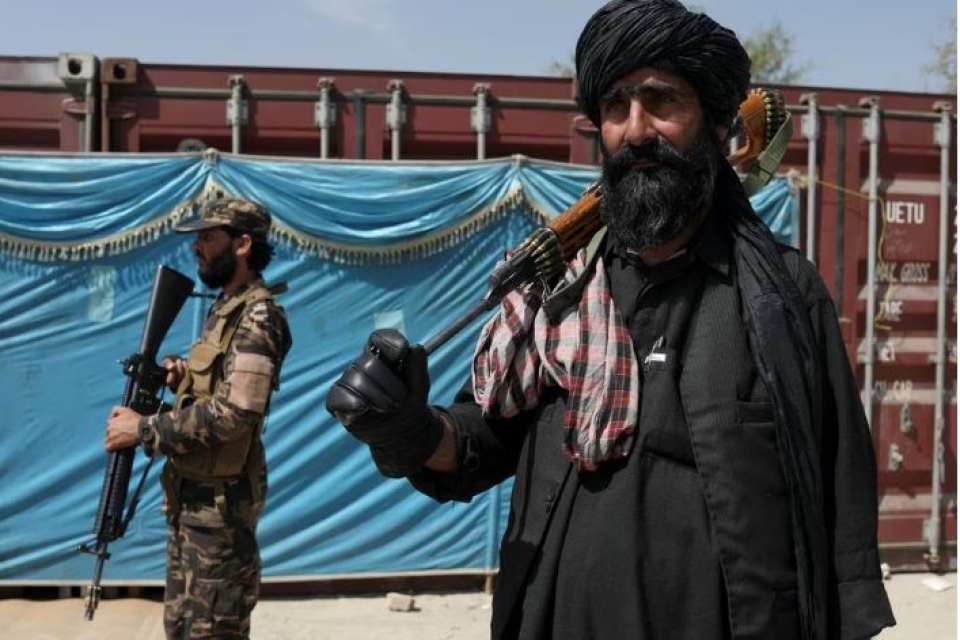The Taliban is in the process of establishing an extensive camera surveillance network for Afghan cities, which may involve adapting a plan initially developed by the United States before their withdrawal in 2021, according to a statement from an interior ministry spokesman shared with Reuters. This initiative aims to augment the existing network of thousands of cameras in the capital city, Kabul.
The Taliban administration, which has publicly emphasized its focus on restoring security and countering the activities of groups like Islamic State that have carried out numerous major attacks in Afghan cities, has also explored potential collaboration with the Chinese telecommunications equipment manufacturer Huawei.
The prevention of attacks by international militant organizations, including prominent ones like Islamic State, has been a central theme in discussions between the Taliban and various foreign nations, including the United States and China. However, some analysts have raised doubts about the financial resources of the cash-strapped Taliban regime to fund such a program, and human rights groups have expressed concerns that the resources may be used to suppress protesters.
Notably, details regarding how the Taliban intends to expand and manage mass surveillance, including accessing the U.S. plan, have not been previously reported.
The large-scale deployment of cameras, with a focus on key locations in Kabul and other areas, is part of a new security strategy expected to take four years to fully implement, as per Abdul Mateen Qani, the spokesperson for the Ministry of Interior. He explained that they are presently working on a security map for Kabul, crafted by security experts, and noted the existence of two previous maps—one developed by the USA for the previous government and another by Turkey, although he did not specify the timing of the latter.
A spokesperson for the U.S. State Department clarified that Washington was not "partnering" with the Taliban and emphasized that it is the Taliban's responsibility to ensure that they do not provide safe havens to terrorists. There was no response from the Turkish government at the time of the report.
Qani mentioned that the Taliban had engaged in a preliminary discussion with Huawei in August regarding the potential surveillance network, but no formal contracts or concrete plans had been established.
Previously, Bloomberg News reported in August that Huawei had reached a "verbal agreement" with the Taliban about a contract to install a surveillance system, though Huawei denied such claims when contacted by Reuters in September.
A Chinese Foreign Ministry spokesperson mentioned that they were not aware of specific discussions but reiterated China's support for peace and reconstruction efforts in Afghanistan and support for Chinese enterprises engaging in relevant practical cooperation.
The existing camera infrastructure in Kabul and other cities, monitored from a central control room, comprises over 62,000 cameras, according to the Taliban. The last major upgrade to Kabul's camera system occurred in 2008, under the previous government, which relied heavily on Western-led international forces for security.
When NATO-led international forces were gradually withdrawing in January 2021, then-Vice President Amrullah Saleh had announced a significant upgrade to Kabul's camera surveillance system, backed by a $100 million plan supported by the NATO coalition. However, Saleh stated in September that the infrastructure for this 2021 plan had been destroyed.
It remains unclear whether the plan referenced by Saleh was similar to the ones the Taliban claim to have obtained, and whether the administration intends to modify them.
Jonathan Schroden, an Afghanistan expert with the Center for Naval Analyses, noted that a surveillance system would be beneficial for the Taliban as it seeks to prevent groups like Islamic State from launching attacks against Taliban members or government positions in Kabul. Currently, the Taliban closely monitors urban centers through security force vehicles and regular checkpoints.

















